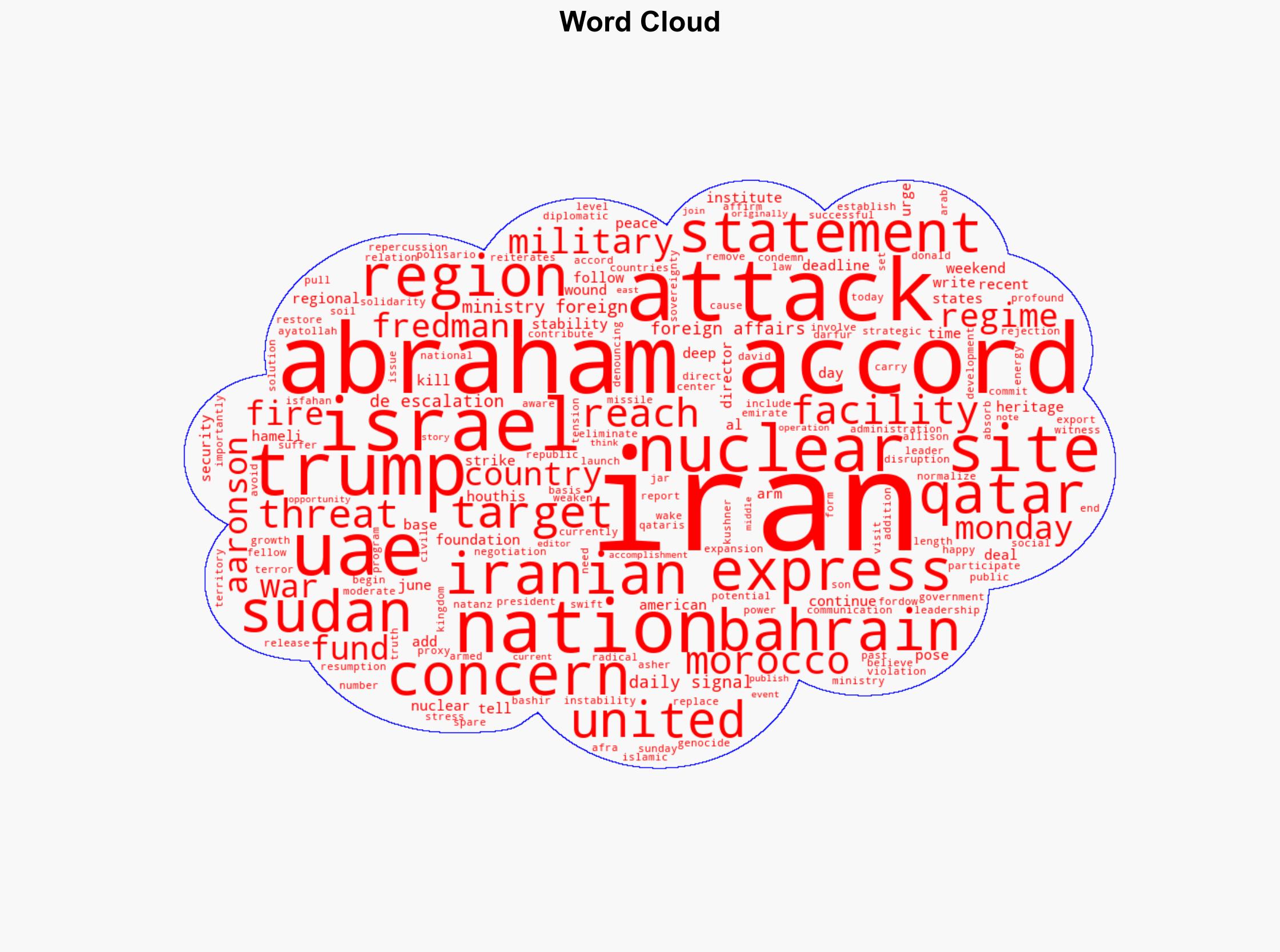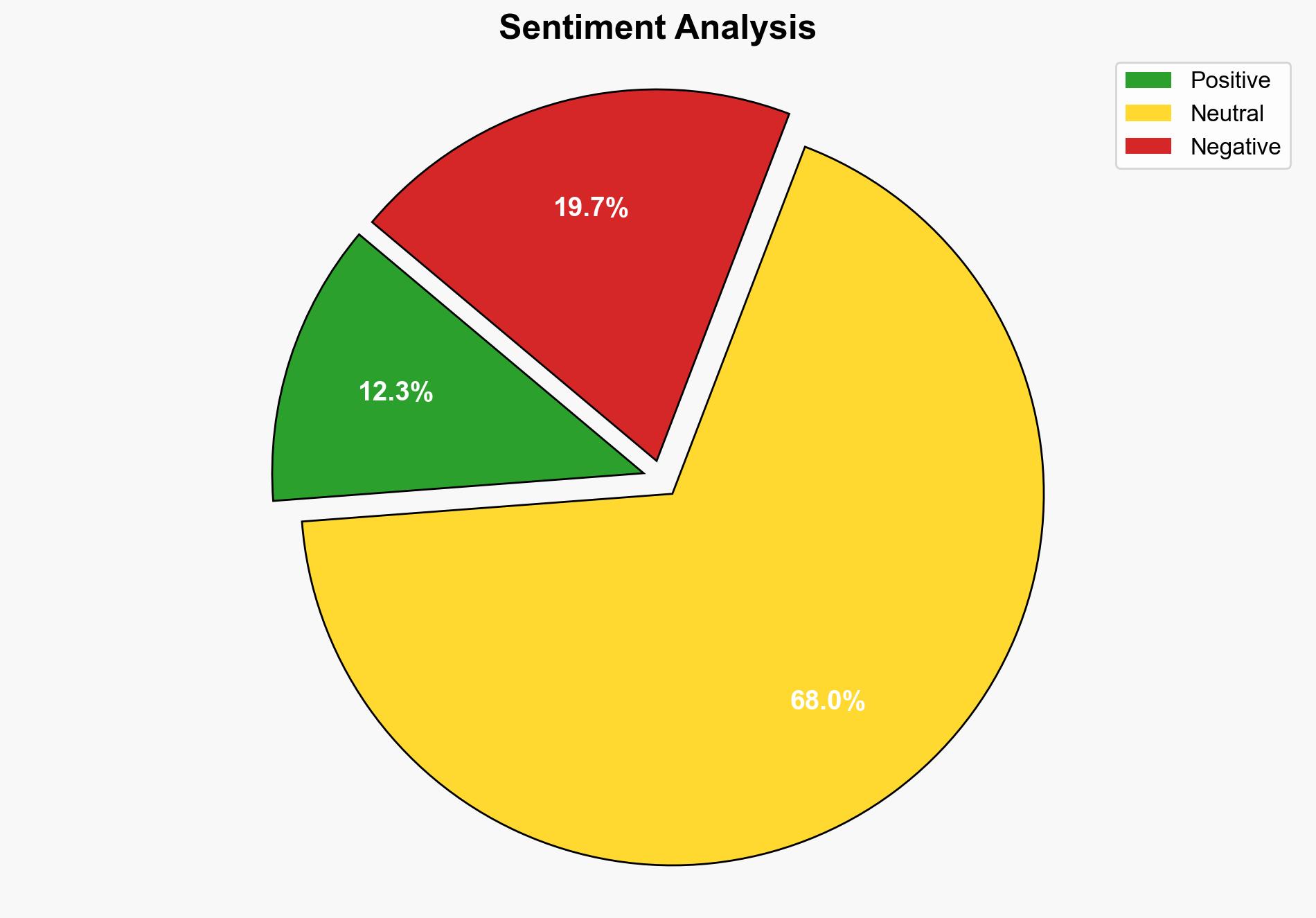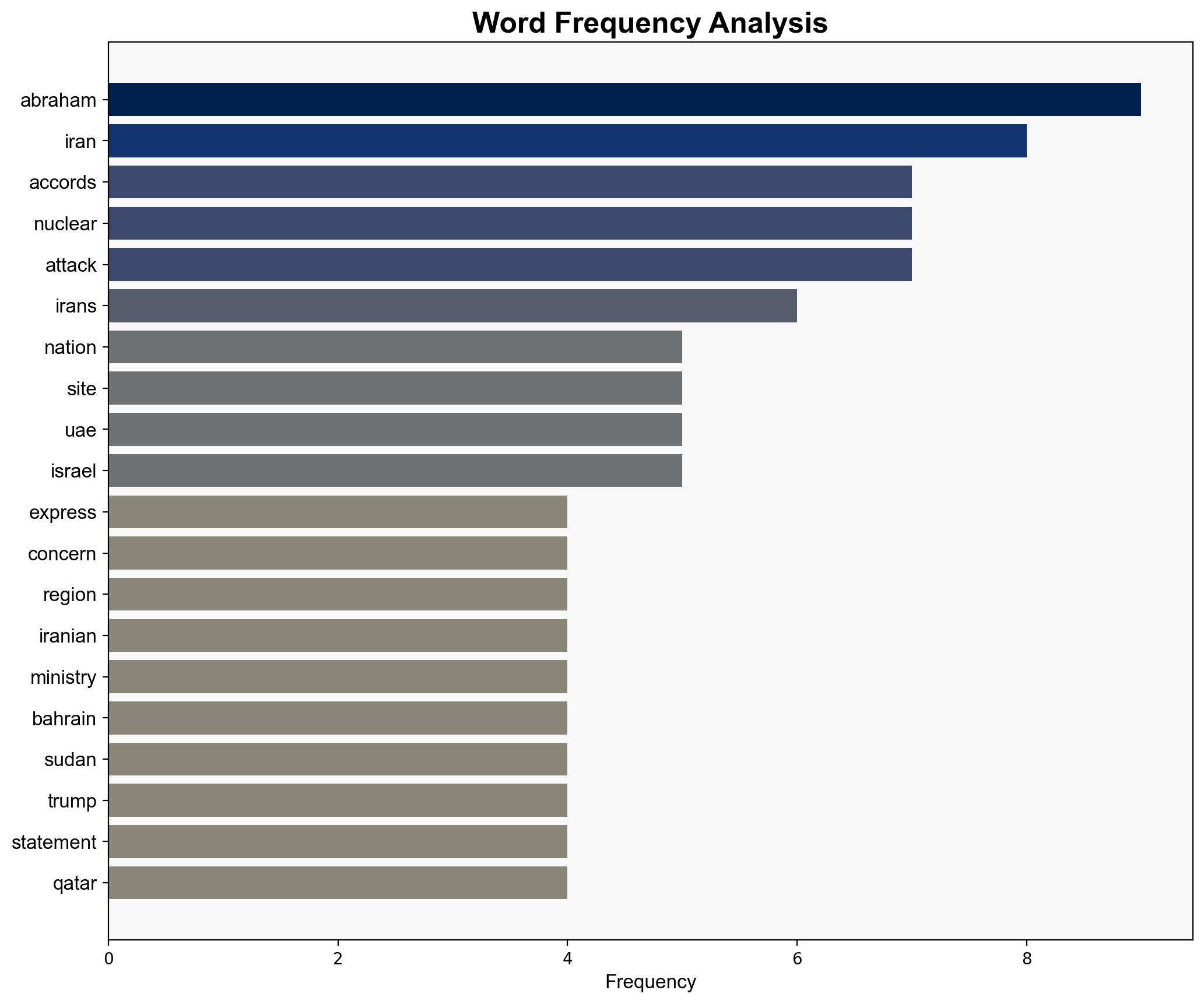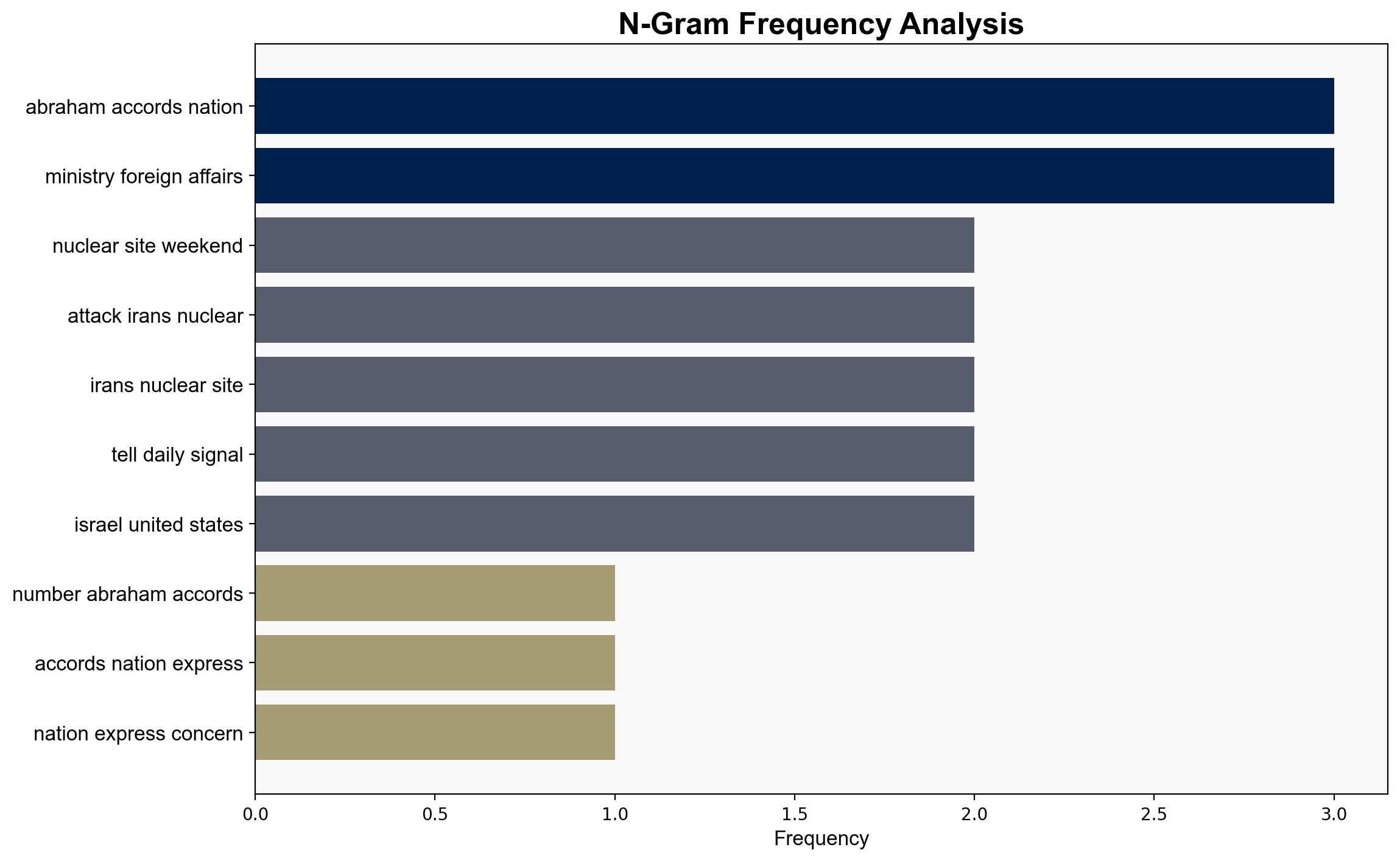Abraham Accords nations react to US strikes on Iranian nuclear sites – Wnd.com
Published on: 2025-06-24
Intelligence Report: Abraham Accords nations react to US strikes on Iranian nuclear sites – Wnd.com
1. BLUF (Bottom Line Up Front)
The recent US strikes on Iranian nuclear sites have prompted significant concern among Abraham Accords nations, including the UAE, Bahrain, Morocco, and Sudan. These countries emphasize the need for de-escalation to prevent regional instability. The strikes have heightened tensions, with Iran responding aggressively, further complicating diplomatic efforts. It is crucial for involved nations to pursue diplomatic solutions to mitigate the risk of broader conflict.
2. Detailed Analysis
The following structured analytic techniques have been applied to ensure methodological consistency:
Causal Layered Analysis (CLA)
Surface events include the US strikes and subsequent Iranian missile attacks. Systemic structures involve the geopolitical alliances formed under the Abraham Accords. Worldviews reflect the differing perspectives on regional security and stability. Myths pertain to the enduring narratives of power dynamics in the Middle East.
Cross-Impact Simulation
The strikes may lead to increased military engagements, affecting energy markets and regional alliances. Neighboring states could face economic disruptions, while conflicts may escalate if diplomatic channels remain unutilized.
Scenario Generation
Scenarios range from successful diplomatic negotiations leading to reduced tensions, to escalated military conflicts involving multiple regional actors. The most likely scenario involves continued diplomatic pressure with intermittent skirmishes.
3. Implications and Strategic Risks
The strikes and subsequent reactions highlight vulnerabilities in regional security frameworks. There is a risk of cyber retaliation and increased proxy warfare, which could destabilize the region further. Economic sanctions and disruptions to energy supplies are potential cascading effects.
4. Recommendations and Outlook
- Encourage diplomatic engagement between the US, Iran, and Abraham Accords nations to de-escalate tensions.
- Enhance regional security cooperation to mitigate risks of proxy conflicts and cyber threats.
- Scenario-based projections suggest that a diplomatic resolution is the best-case scenario, while prolonged conflict represents the worst-case scenario. The most likely outcome involves ongoing negotiations with sporadic tensions.
5. Key Individuals and Entities
Afra Al Hameli, Asher Fredman, David Aaronson
6. Thematic Tags
national security threats, cybersecurity, counter-terrorism, regional focus




